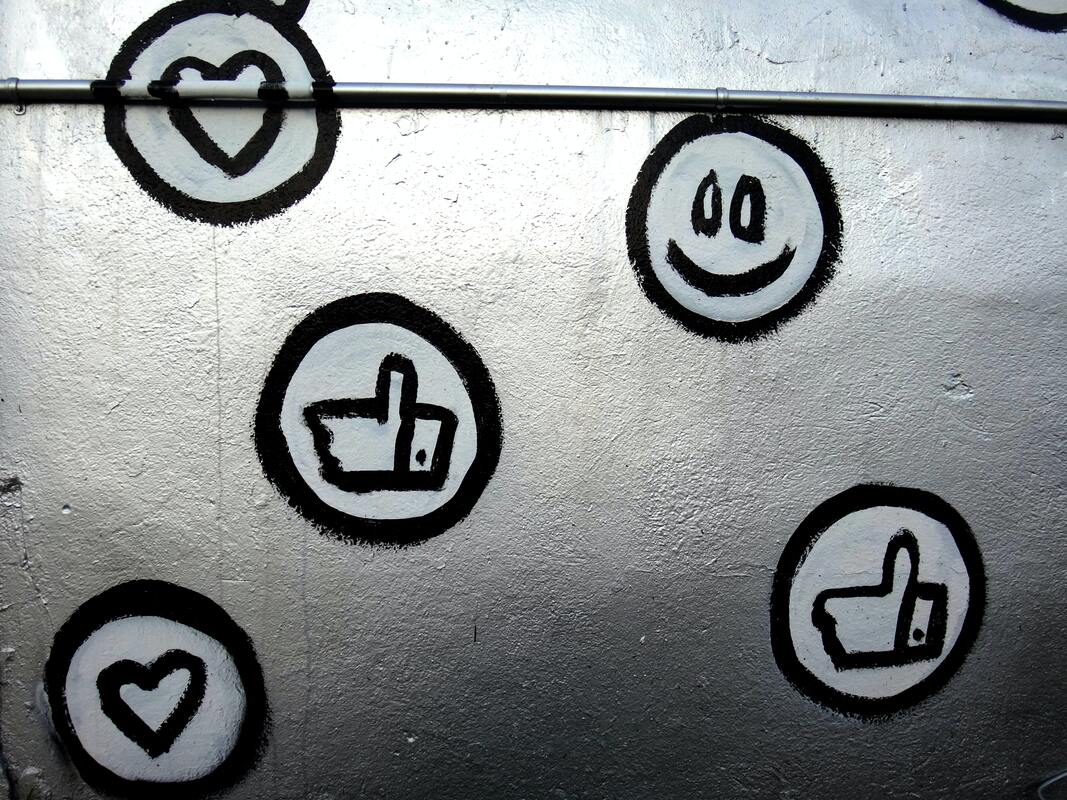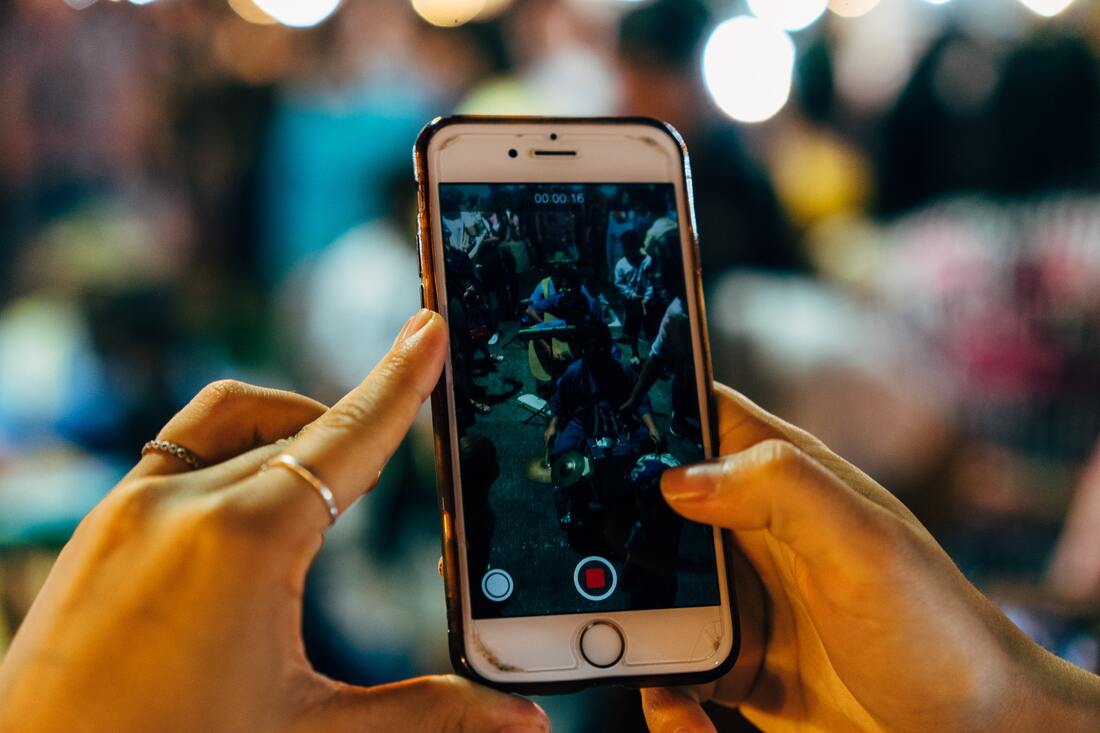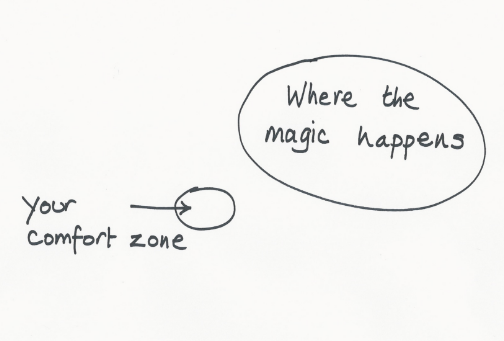|
Every day eighty years worth of video content is published to YouTube, meaning you could spend your entire lifetime watching the videos uploaded today. Insane, right? Gone are the days when you needed expensive equipment, extensive training and a production team behind you to create content. Anyone with a mobile device and internet connection has the ability to tell the stories they want to tell, and the ability to make a living from those stories. Beyonce said girls run the world, and while that remains true - content runs the online world, making it digital gold. (Sorry bitcoin) It’s become easier than ever to create video content and build engaged communities around the things that you are passionate about. Unfortunately the video creator’s livelihood currently lies in the hands of a few big players who have ever-changing algorithms and weighted metrics. Wouldn’t it be nice if we could reinvent the digital media business model? Creators are not the only ones impacted by the way digital media is published and reported on. The brands that creators and influencers work with have no way of evaluating the true reach of a piece of content, or an individual for that matter. Making the analysis of what content performs well and reaches the audience very difficult. Here’s an example - I used to work for a large media organization, as an entertainment reporter. I had done a one minute video on Twitter’s reaction to Kim Kardashian’s Paper magazine cover. By the end of the day that video probably saw around 2000 views on YouTube. The next day my phone was blowing up. I had several notifications on Facebook, which was weird because my mom is the only person who engages with me on Facebook, and had been tagged in content on several other platforms. I thought to myself, finally - this is the day that the world finds out about something stupid I’ve done in my past. To my delight (and surprise), the video I was tagged in was a video that actor Russell Brand had created as part of his online series, The Trews. Brand’s video was also about Kim Kardashian’s Paper magazine cover, but took a slightly different angle. The interesting part for me was that he used almost my entire one minute video within his, my face and all! If my friends didn’t tag me - I would have never known that video existed. Am I mad that he didn’t credit me? Nope. Am I upset that he used my video? Again no. Am I upset that I didn’t get to see how far that video that I inadvertently participated in travelled? Yes. Piracy is dead in the water. The future of online content creation lies in participation. If I was able to see the analytics and reach of the video published by this Hollywood celebrity, I would have been able to benefit from the inadvertent collaboration - the news organization I worked for would have also benefited. I would have been able to show future employers my reach and influence - and the news organization would have been able to monetize the reach and influence of our 1 minute daily entertainment headlines. Enter Streambed Media. A company that is working to put the power back into the hands of creators, solving the problem I just described. Right now our platform allows users to post to social media using our tool, sharing the video’s analytics in real time with co-collaborators. We also enable anyone who publishes video content, insight into how their content is shared across platforms, with a lot more exciting features in the pipeline for the future. As a content creator, I can honestly say this is exactly what I’ve been waiting for. I met the co-founders of Streambed Media in the summer of 2019. I was auditing a Creative Destruction Lab blockchain bootcamp being run out of the Rotman School of Management. At the time I had absolutely no blockchain knowledge and was an executive MBA student at the school. I held some cryptocurrency on the advice of an ex-boyfriend, and that was it. My personal goal for the bootcamp was to be confident in a room of people who didn’t come from my world. I pushed myself outside of my comfort zone, and was as authentic as could be - loudly proclaiming that I work in content and branding and was there to learn. Streambed Co-founder, Michael Casey overheard me and immediately wanted to have a conversation. He had co-founded a company that was building a blockchain solution for online video creators, and he thought I had some valuable insight to offer. After speaking to the team more, I realized that this was a team I wanted to spend my time with. The problems they were hoping to solve - were problems that I had faced time and time again working at media organizations, advertising agencies and as an independent creator. Today, I am the Chief Marketing Officer at Streambed Media and have spent my time exploring pressing questions around digital rights and media; and the role that emerging technologies will play in digital content as we go forth into the ever changing online space. Building this company over the past year has come with many learnings around getting an early stage start-up off the ground and I am so excited to say that we are about to launch the very first version of our product to beta testers. We also successfully graduated from The Creative Destruction Lab, making our company esteemed alumni. For anyone that wants to be a part of our beta group reach out to me in the comments section!
7 Comments
With days merging into each other and kitchen islands doubling as work desks, we’ve been forced to come up with new ways to stay afloat and stay sane. The digital world has become more important than ever, and companies that previously had no digital strategy have had to reimagine their existence in a completely digital world.
Birthday parties, happy hours and lunch dates - the internet is being used to form connections in a more meaningful way. People banding together, while staying apart to offer support, guidance, education and entertainment in these uncertain times has in a weird way re-instilled the sense of community that was starting to fade. Content and content creation is making the world spin, people need information on how to keep themselves and their families safe - and when that becomes overwhelming they look to entertainment to help get them through the innate boredom that comes with being stuck in the house. (Are you bored in the house and you’re in the house bored? Because me too.) I was recently asked to organize a completely virtual music show to raise money for COVID-19 relief by the team at CoinDesk. The media organization focuses on blockchain and digital currencies, and is producing Consensus: Distributed - a five day long virtual event jam packed with content, workshops and networking as a part of New York Block Chain Week. The conference is the biggest event on the blockchain calendar and previously cost thousands of dollars to attend. It can now be accessed by anyone in the world for free from the comfort of their own home. Opportunities like this were few and far between in the pre-COVID world, and act as a glimpse into the evolution of collaborative events. A future where online networking, performance and collaboration is an expected component to any event, is the future that this global pandemic has sprung us into - and frankly I believe it has opened up opportunities for creatives everywhere. There is still immense value in face-to-face interaction and feeling the energy of the people you’re interacting with. But we’ve been pushed into a world where every artist is being pulled to participate in more events than ever because “it’s so easy, it’s just online!” Artists will need to be more mindful of their strategies and priorities as the creative industry navigates this new normal. Luckily I was able to curate a special group of musicians to take part in the 5PM Happy Hour - a one hour event that brings musicians together from all over the world to give very special performances from their homes, sparking conversations around unity, togetherness and love during these strange times. It was an absolute wild ride putting this show together across time zones and questionable internet connections (mine mostly). But it all came together and will be absolutely free for anyone with an internet connection to watch. Technology will be a big focus as we explore how blockchain, tech and cryptocurrencies can enable creatives to navigate a world where, live performances, a main source of income, have had to be reimagined. I know you have endless Zoom happy hours booked in your calendar, but make some time on May 11th, to join us for the 5pm ET Happy Hour on CoinDesk’s Twitter. If you’d like to donate, go here. sWhen people hear that I'm doing my MBA, the first question I always get is why? The answer to this question is that, as a creative, I want to be able to understand the business sense behind everything I create, and be able to think critically about the content, data, impact and monetization. As someone who has operated in the creative industry all my life, many of my peers and colleagues don't see the worth of doing a masters degree, especially one in business. After all, the media industry isn't what you know, it's who you know, right? I have a problem with that saying. While it helps to have connections, and networking is an important part of any business, it definitely does come down to what you know. My mom always said, "if you don't have the tools, how do you expect to do the job?" Doing an MBA is definitely one way to begin to acquire the tools, should you want to do the best job possible. Before I started on this journey of higher education, I wasn't sure if it would be the right decision for me. I had been out of school for the better part of 10 years, and I had convinced myself I had ADD and would absolutely not be able to sit in a classroom, listen to lectures and actually learn. I didn't remember what school was, and I was 70% sure I wouldn't like it. After doing some more research and going through the course descriptions with a fine toothed comb, I decided that if I ever wanted to make a drastic change in my career, and achieve my goals I would have to push myself outside of my comfort zone. Update: It turns out I don't have ADD. I accepted the offer to attend the Rotman School of Management at the University of Toronto in their Global Executive MBA program, not knowing what to expect. I was pleasantly surprised. While business core competencies are taught: accounting, economics, finance, etc. A great focus is put on self awareness, building relationships and understanding people. We are encouraged to reflect and be introspective, and are often reminded that business isn't about making the most money at the expense of everything else. We have access to a network of great minds, and are encouraged to use the time during the program to create our own networks. While reflecting on my experience so far, I realized that I'd never been introduced to a group of people in my life where I've made as many connections as I have as quickly as I have, I'd like to think that this speaks to the school's admissions process. The administration were able to curate a group of people who I've been able to learn from, grow with and lean on. At first, I felt like we were only scratching the surface in each course. I felt as if I wanted the learning experience to go far beyond what was being covered in class. I realize now that being at the head of any business requires that you know just enough about every department so that you can understand what's going on, offer support, and spot when something doesn't seem right, the rest is left up to the experts that you hire. The Global Executive program sees our class travel every third month. While travelling, our courses are delivered at partner universities, we have the opportunity to speak to and learn from entrepreneurs in local markets and have taken part in business case studies directly related to the country and economy that we are visiting. This experience has opened my eyes to how business is done globally, and has made me aware of the cultural understanding needed to successfully operate a global business. Has the MBA been worth it for this creative mind? 100% yes. I've learned how to read a balance sheet, and I've learned a lot about myself and how I contribute to both successful and unsuccessful situations in business. I am certain that these learnings will benefit my career in the media industry and help me navigate the path to success. |




 RSS Feed
RSS Feed